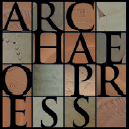
Publishing Scholarly Archaeology since 1997

H 210 x W 148 mm
220 pages
Fully illustrated with maps and photographs in black & white throughout
Published Mar 2015
ISBN
Paperback: 9781784910969
The Dodecanese: Further Travels Among the Insular Greeks
Selected Writings of J. Theodore & Mabel V.A. Bent, 1885-1888
Edited by Gerald Brisch
Paperback
£15.00
A sequel to The Cyclades, a compilation of late-19th-century travel writings (with an archaeological/ethnographical bias) centred on the Greek Dodecanese islands. The authors are the British explorer J. Theodore Bent (1852-1897), devotedly supported by his wife Mabel Virginia Anna (1847-1929)
Contents
Preface by Marc Dubin Introduction by Gerald Brisch J.T. Bent: Selected Writings on the Dodecanese: Rhodes Níssiros Tílos Kárpathos From Sými to Kastellórizo Sýrna Agathoníssi Pátmos Astypálea The Travel Chronicles of Mabel Bent: Chronicle III – 1885 Chronicle IV – 1886 Chronicle VI – 1888 Sidetrack 1: J.T. Bent: Related Writings: ‘The Three Evils of Destiny’ ‘Parallels to Homeric Life Existing in Greece To-day’ ‘Personification of the Mysterious Amongst the Modern Greeks’ ‘The Carpathiote Dialect’ ‘Modern Life and Thought amongst the Greeks’ Sidetrack 2: Mabel Bent: Related Writings: On Insular Greek Costumes Sidetrack 3: The Itineraries in the Dodecanese Bibliography Illustrations and maps Index of Place Names

 Add to wishlist
Add to wishlist
